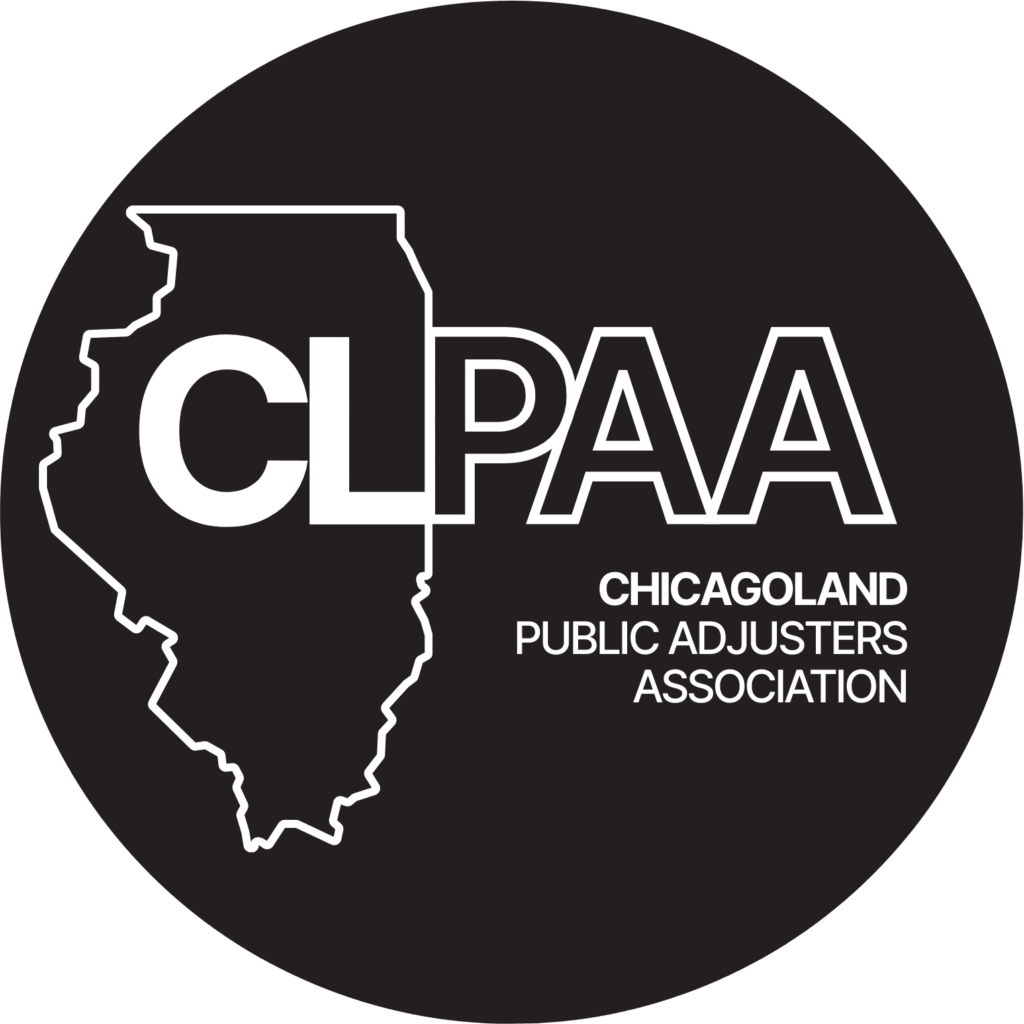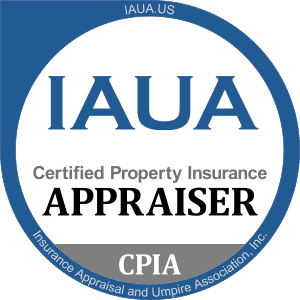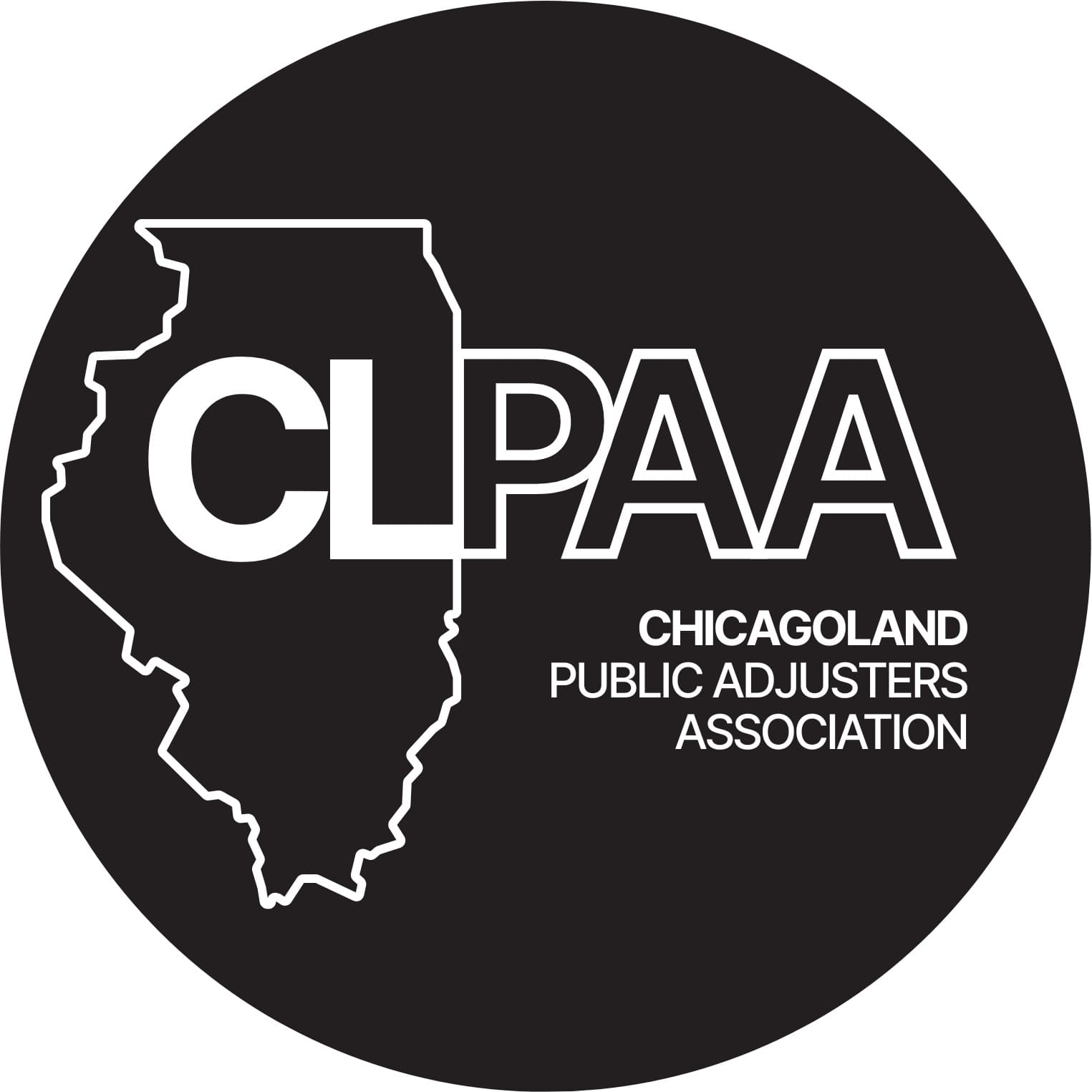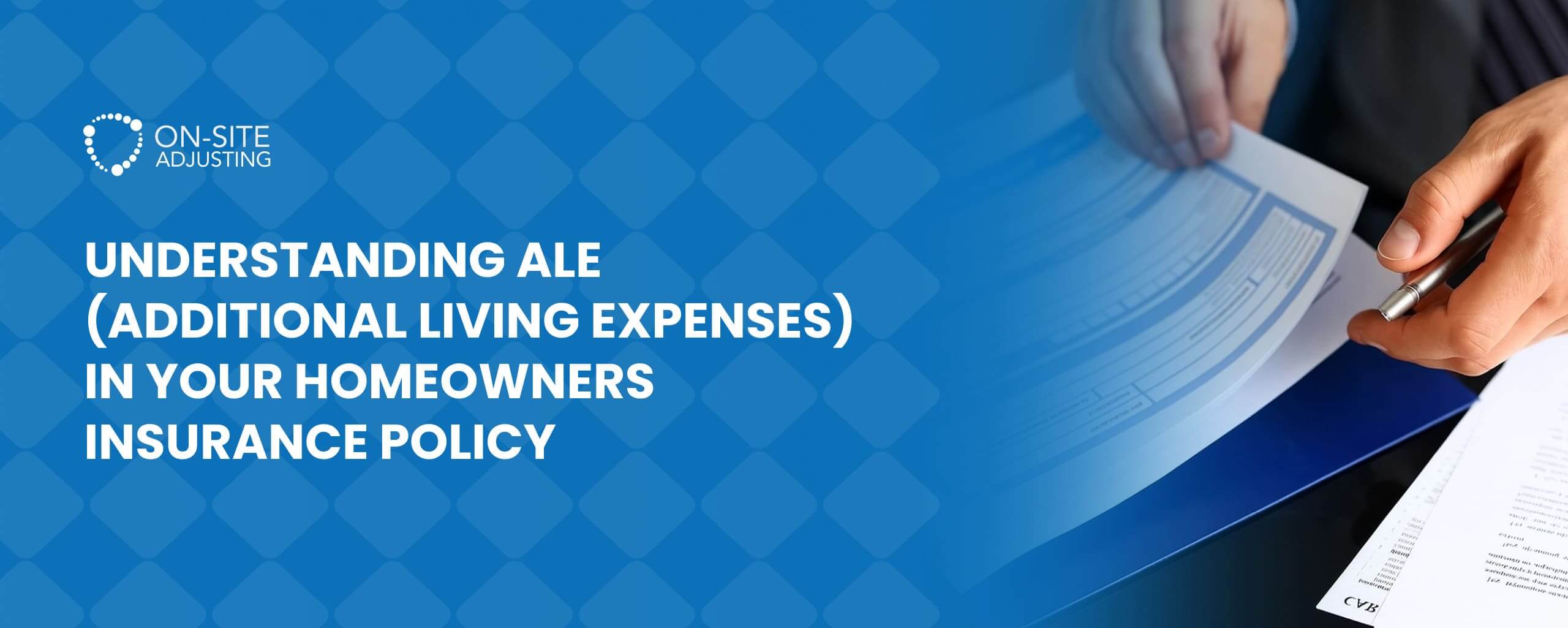
According to NCEI, in 2024 there were 27 climate disasters in the USA, each of which caused damages exceeding $1 billion. Tens of thousands of Americans lost their homes or were forced to relocate temporarily. At the same time, man-made emergencies (fire outbreaks or flooding) just as seriously destroy dwellings.
When you find yourself in such a situation, the last thing you want to think about is money. But temporary housing, food, and moving are not free. Expenses accumulate at a tremendous speed. Yes, this is bad news. But there is also good news: losses are covered by the insurance policy under the section “Additional Living Expenses” (ALE). The point is that few homeowners know about this.
Next, we will explain what ALE is and what it covers, what tricks insurance companies use, and how a public adjuster for insurance claim will help you get what is rightfully yours.
What Are Additional Living Expenses (ALE)?
ALE is a direct compensation that is paid under an insurance claim when your home becomes temporarily uninhabitable due to an insured event. This may be a fire, storm damage, or flooding, which forces you to file a burst pipe insurance claim.
According to information from NAIC, ALE covers the difference between ordinary expenses and those that arise due to the inability to live at home.
That is, if you previously cooked at home and $500 was enough for a month, but now you are forced to eat in cafes for $1000, the insurance will compensate the difference of $500.
To avoid confusion, it is important to understand the hierarchy of some terms in your policy. Thus, “Loss of Use” (or Coverage D) is the name of the entire section. And it, apart from the mentioned ALE, also includes Fair Rental Value. This is compensation for lost rental income. For example, if people rented a room or a basement from you, and now due to the damage this is not possible.
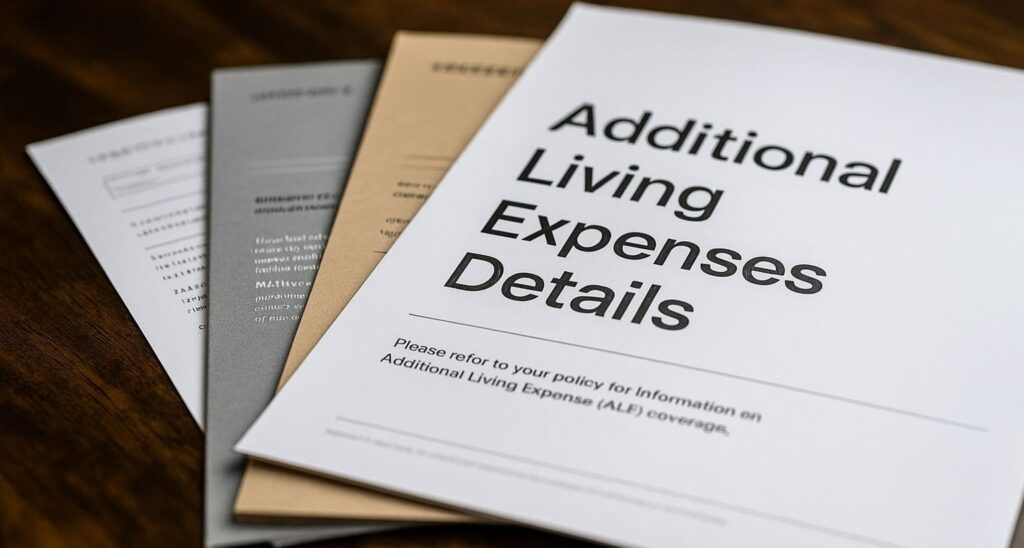
What ALE Typically Covers?
Why does ALE exist at all? To prevent you from going bankrupt while waiting for repairs. Therefore, under the ALE section, you will be reimbursed for:
- Temporary rental of an apartment, house, or hotel.
- Meals (if there is no kitchen in your temporary housing).
- Paid utility bills for electricity, water, and internet in the temporary dwelling.
- Additional transportation costs (if the temporary housing is located farther from your workplace or your child’s school).
- Rental of storage space for surviving furniture and personal belongings.
- Other necessary expenses caused by the impossibility of living at home (for example, laundry services if you do not have access to a washing machine).
Important! ALE covers expenses only under certain conditions. If the home was vacant or the insurance company believes that the damage occurred due to your negligence (you left windows open during a storm, delayed repairs although you knew about the problem, did not turn off the water before a trip) – compensation will not be provided. Also excluded are cases related to illegal activity.
Feeling stuck with your claim? You don’t have to fight alone.
Reach out to us — we will review your claim for free and help you understand your options
ALE Limitations and Common Insurer Tactics
Nevertheless, insurance companies are not in a hurry to give out money. And although ALE is your right, there are formal limitations and informal tricks that are used to reduce payouts.
What can you face? First, let us talk about the official conditions written in the contract.
| 1.Documentation requirements | The insurance company will not reimburse a single cent without confirmation. You need absolutely all receipts, vouchers, and invoices to prove every expense. Without papers there will be no money. |
| 2.Policy limitations | Your contract always has limits: the maximum payout amount, daily or monthly restrictions, as well as time frames (usually 12 or 24 months). Any expenses beyond these limits fall on your shoulders. |
| 3.The principle of “reasonable cost” | The insurance company will claim that your expenses are “excessive.” They will compare them not with your usual standard of living, but with market prices, which often turn out to be the lowest possible. |
However, the main risks lie not in the terms of the contract, but in how the insurance company interprets them to its own advantage. For example, it delays approvals or refuses to reimburse obvious expenses, forcing you to pay out of your own pocket.
But there is a chance not to let yourself be deceived. And it is very simple – to hire an independent public adjuster, who will work for you and not for the insurance company.
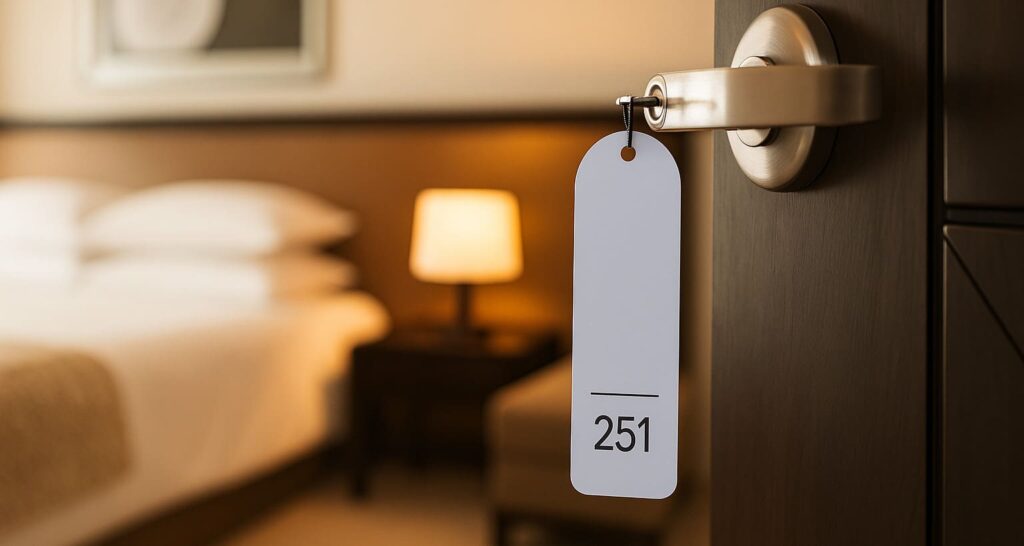
How a Licensed Public Adjuster Can Help with ALE Claims?
When you deal with property damage insurance claims, every mistake in communication with the insurance company will cost thousands of dollars. With a licensed claims adjuster, you save them.
What does our team do for you?
- Analyzes the policy to identify all ALE coverage options that the insurance company would prefer to remain silent about.
- Prepares and submits a full, documented expense list.
- Conducts negotiating with an insurance adjuster regarding the maximum payout.
- Controls the process so that you receive the money on time, and not after months of waiting.
On-Site Adjusting is a Licensed Public Adjuster in California, Wisconsin, and Illinois, providing legal and professional representation.
Real-Life Example of ALE in Action
What was the situation?
His family lost a three-bedroom home with a backyard due to a fire. They were in despair and needed immediate temporary housing.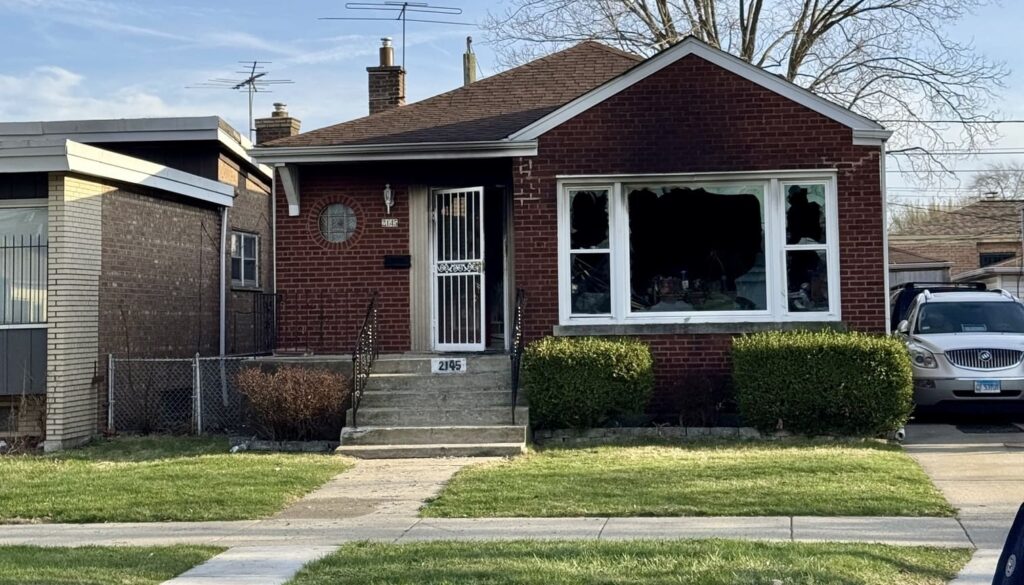
What did the insurance company propose?
The insurance made the standard move – hotel rental for six months. At first glance, this seemed acceptable. In reality, such a solution deprived the client of a normal life for the entire repair period.
What did the On-Site Adjusting team do?
Therefore, we rejected this proposal. Our task as a fire claim adjuster is to insist on compliance with the principle of like kind and quality. We proved that the family had the right to rent a house similar to the one they lost.
What was the result?
Instead of surviving in a hotel room, the family received a comfortable home for rent. Was the client satisfied? Of course. And this is the main thing for us.
Steps to Take When You Need ALE Coverage
If your home has been damaged, act quickly and consistently:
- Immediately notify the insurance company. Report the insurance case and request written confirmation that your ALE is activated.
- Contact with an expert. To manage the process and fight for full payment, you should find a public adjuster as early as possible. This way you will save both nerves and money.
- Keep all records and receipts. Create a separate folder for all vouchers, invoices, and contracts. Record the date, amount, and reason for each transaction.
Insurance companies often deny not because of the amount, but because of the absence of explanations. Do not create unnecessary risks for yourself.
Final Thoughts
ALE is not a gift from the insurance company, but your contractual right, for which you pay monthly contributions. In stress, it is easy to agree to the first proposal, which is exactly what the insurance counts on. The earlier you involve a public adjuster in the case, the higher your chances of fair compensation.
Would you like to receive a free analysis of your ALE case? Call the On-Site Adjusting team at (866) 861-4992 or (866) 933-0404, or fill out our contact form.
READY TO GET YOUR PROPERTY BACK TO NORMAL?
Fill in this form, and we'll get back to you shortly

